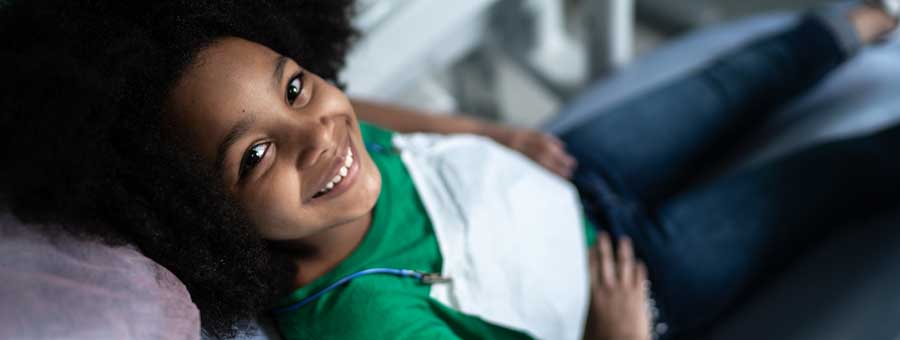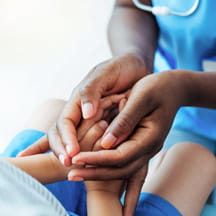In Wisconsin, suicide is the second most common cause of death for youth, a sobering statistic exacerbated by a statewide shortage of 117 psychiatrists to meet the minimum needs of the pediatric community. For Children's Wisconsin, priority areas in behavioral health include early detection, increased access to care and reducing stigma.
"'Will investing in an initiative or program improve access for kids in Wisconsin?' is the first question we ask ourselves," Amy Herbst, vice president, Mental and Behavioral Health at Children's Wisconsin, says. The hospital outlined where they want to lead those priorities, versus areas where community partners would be more effective in implementing change.
"Our mental and behavioral health strategy is not just the responsibility of our mental and behavioral health team," Herbst says. "It's the responsibility of our entire system." Here are five ways Children's Wisconsin is working toward their priority areas:
Screening
The goal is to have depression and anxiety screening be a consistent part of every interaction with the health system, regardless of a patient's reason for the visit. Herbst cites some children as only touching the system through annual dental visits, which is their opportunity to screen that patient for behavioral health issues. "Every interaction with a child is an opportunity to screen," says Julie Swiderski, executive director, Mental and Behavioral Health.
Early childhood mental health
Children's Wisconsin lacks a comprehensive and convenient way to treat kids age five and younger. Moving forward, they'll build upon existing resources to establish and develop a comprehensive system of care for early detection, intervention and prevention for kids up to 5 years old.
School-based mental health
Children's Wisconsin is present in more than 50 schools across the state. The goal is to double that presence over the next five years. "Once you've established a template for the work, it's easy to replicate in new schools," Swiderski says, with the caveat that all schools have nuances and a need for variation in programming.
Integrated behavioral health
A pilot program put three mental health providers in two primary care clinics to support the patients in those practices. Psychologists were also present in certain specialty clinics for kids with behavioral health needs that have other medical diagnoses. Children's Wisconsin is working toward at least one provider for every primary care location and dedicated providers across all specialty clinics in the state.
Therapist Fellowship Program
This program allows students to secure their supervised training hours on a full-time basis while working at Children's Wisconsin to overcome barriers of obtaining hours. The first group of five was hired in July 2019 and the second in July 2020. A new cohort will join for at least five years. Once the student completes supervision, they are hired at Children's Wisconsin. "We see this as a workforce development initiative but also an access to care initiative," Swiderski says.
In addition, Children's Wisconsin has a goal to better coordinate with external partners, so patients have more seamless transitions in their care journey.



